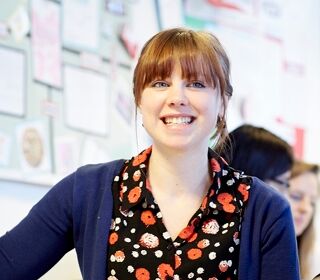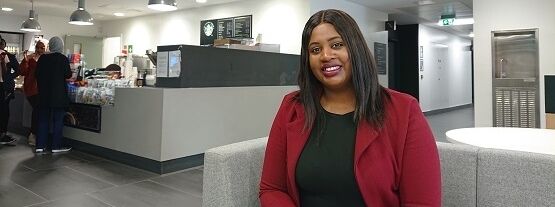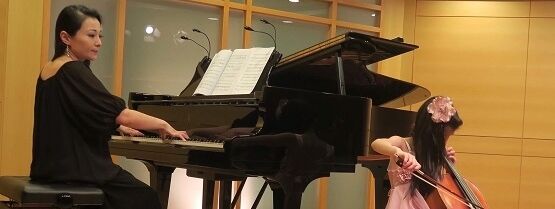
Blog

We’ve spoken to a full-time, a part-time and an international student to find out what motivated them to go on to further study and learn about their wide range of interests.
Sarah
Sarah came to her Master’s study straight from her undergraduate degree in Childhood, Family and Education at another university.

“The idea of Master’s level study can be daunting but if you enjoy your subject there’s no reason why you shouldn’t go for it, even if you’re a mum of one commuting in from Wolverhampton like me!
“I was a Nursery Nurse Assistant for about three years before doing my undergraduate degree but thought I wanted to be a teacher so this meant going to university. As a care leaver, this was a big deal for me; only around six per cent of care leavers go into higher education.
“It’s this personal situation of mine that’s driven my interest in education and the barriers some people face, not just because of personal circumstances like but other factors like having special educational needs (SEN).
“Studying for my Master’s is defining my identity – it changes the way you think, the way you look at the world. It’s also taught me that you have to be adaptable and have perseverance. Ultimately you have to find learning fun otherwise you wouldn’t put yourself under the pressure of this level of study. Luckily for me I work better under pressure and I also really enjoy learning.
“The tutors really challenge you on your ideas to make sure there’s academic rigour to your work. For my dissertation I’ve been working on an auto-ethnography. Writing about yourself obviously presents certain ethical challenges as your research is based on yourself. This is an increasingly popular approach in postmodern society and the academics here have really helped me to manage the obstacles.
“Not everyone discovers their passion as early as I have so there’s a really wide range of ages and experience among the students on this course, which is really helpful for learning about different experiences and perspectives. Now, I’ve decided that if I go into teaching, it will be in the post-compulsory education sector (usually 16+) or there’s a possibility I will try to move into educational consultancy with a particular emphasis on SEN. I’m also not ruling out a PhD in the future so there’s lots of ways I could take another exciting step forward!”
Education Courses
Find out more about our courses
Hariet
Hariet is a clarinettist and international student from Taiwan who completed a degree in music from the University’s Conservatoire back in 2005. She’s since been in Taiwan but has returned to Birmingham to continue her academic career.

“After my BMus degree I went back to Taiwan to teach music alongside performing. I was also married to a cellist. It soon became clear that it would be hard to make a living. I found that many highly-trained performers weren’t able to flourish financially because there isn’t enough emphasis on the importance of music education. This isn’t just a thing in Taiwan or the UK – it’s happening internationally.
“I had all of these thoughts about the benefit to children of learning to play an instrument, not just for their wellbeing and the achievement in itself, but also the way music education can enhance children’s abilities in other subjects which governments often deem to be more important, such as mathematics. However, I couldn’t prove it or have enough of a voice to effect any change.
“So I decided to do my MA in Education with a focus on international education to do some formal research in this area. I’m interested in showing that there is a difference between the benefit of learning music theory and actually physically learning to play and instrument (and the need to read music that this necessitates). It’s brought up all sorts of issues, including the fact that equity of opportunity to access instrumental education does not exists.
“Studying International Education has given me a much broader view than just music. It’s expanded my mind and given me the academic tools to use my experience and get my thoughts into writing in a way that I wasn’t able to before. Ultimately, my research has shown me that I don’t need to perform on the stage to have an influence in music. My aim now is to produce research, which I can use to influence policy makers. Who knows, a PhD may even be on the horizon now.”
Aaron
Aaron is a full-time teacher in the UK and has been completing his Master’s study part-time around his work commitments.

“I completed my PGCE in 2017, which enabled me to teach in the further education sector. I then achieved QTLS (Qualified Teacher Learning and Skills). Through my PGCE I realised I loved the theory side of things, so I decided to take my studies further and start a Master’s degree.
“I was able to gain accreditation for the 60 credits of study at Level 7 that I’d already done as part of my PGCE. I’m completing the remaining 120 credits needed to achieve a Master’s by studying part-time and at a distance, but I still have a monthly meeting with my dissertation supervisor.
“My research interest is the role of data in the classroom. Educational institutions are so focused on data now but I felt that areas like behaviour are more complex than the numbers. We’re so focused on logging data we don’t always have time to analyse it properly and consider what it means. If we’re to spend all this time on data it needs to have some benefit! So I’m looking at the role of data in behaviour management, how it can be effective and whether it’s ethical. I’ve interviewed staff, appraised the software we use and I have my own knowledge from using the systems every day too.
“I’m loving this level of study and I’m already considering taking the next step with either a PhD or EdD (Professional Doctorate in Education) – part-time of course!”